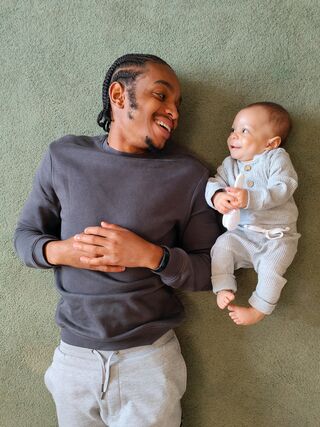Fear
Affirming Love for Ourselves Even in the Midst of Fear
Finding healthy ways to explore fear and love can enhance our mental health.
Posted October 24, 2022 Reviewed by Michelle Quirk
Key points
- Fear is inevitable, but how we deal with it ultimately leads to our openness to take a chance to see love in our life.
- An openness and willingness to be vulnerable and be open about your fears should be discussed in a safe space.
- You may experience feelings of doubt and negative self-thinking when embracing your fears, but please know that you are not alone.

We all desire human connection. For most of my adult clients, a lot of the conversations that we have in therapy are centered around their family dynamic or romantic relationships. In both categories of these relationships, there can certainly be uncertainty around if a family member or partner will meet our emotional needs.
Now that I am seeing more couples, I see more and more about how our family dynamic influences the type of community, partner, or partners that we seek in our lives. Whether it is avoiding the type of family dynamic or relationship that our parents had or a desire to create emotional intimacy that our family never modeled, we are all, to some degree, caught up in the cycle of figuring out how love and all its nuances will manifest into our lives.
At various stages of our growth and development, love, desire, and companionship look different. For example, the things that we needed at the age of 20 may no longer resonate with us at the age of 65, and we are forced to evaluate how we will meet our current emotional needs as the number of years ahead of us challenges how we view our mortality.
In my work with my clients and in my own journey, I have grown to respect and honor that most individuals place a certain level of confidence and self-esteem regarding the number of people in their life that they can count on to be there for them. This is totally understandable, but in those precious moments in therapy when we are face to face with dealing with our naked truth and the truth of those we love, it is hard to hide the feelings of insecurity that may exist when we don’t feel validated and accepted. When we are unhappy as human beings, we hopefully have a general sense of what makes us feel this way, and we hopefully have the courage to address these feelings, even if it means that some relationships can’t be preserved.

In my work with couples and families, I have also learned that our identity should not be dependent upon how much someone else validates and affirms us as individuals. Hopefully, our self-esteem can be enhanced by the partner or partners that we have chosen. However, we all at times will waver or fail in giving someone what they need or being the best person that we can be as human beings.
So, I often ask my clients, how much room is there for patience, understanding, and compassion for ourselves and others in our exploration of love and trust? If one begins to question or doubt themselves, negative thinking could potentially leave us feeling powerless, and I never like for my clients to feel like others have power or control over them.
Self-love is a concept that, in theory, seems easy to work on because most individuals value taking the time to learn about how to improve their lives and their relationships as well as engage in self-care. Fear can be such a stumbling block in our lives, especially if we are not fully prepared to face the past circumstances and situations in our lives that keep us from being fully present. As I write this post, I think about my own fears and trepidations that at times stop me in my tracks and cause me to question myself. It is my hope that we can address our fears through love and support. Here are some of my suggestions:

1. Perfection is hard to maintain.
Who doesn’t want a situation or person to be perfect? However, the reality in life is that most situations and people will never be 100 percent the ideal that we have imagined. Our fantasy mind is a wonderful and yet dangerous thing at times. It is wonderful because it is awesome that we can hope and dream about the endless possibilities that could exist for us as human beings. However, a fantasy should be grounded in reality based upon the limitations of human beings being flawed. This does not mean that we should accept anything, but it does mean that we should consider that everyone has a limited capacity in even trying to do their best.
2. Avoid avoidance.
Even as I type the word avoidance, there are a couple of scenarios that I would like to stay clear of, if they were to occur. We all have this feeling, but if whenever “avoidance” is causing you to not be able to live your life with gusto, it should be evaluated. Facing our fears will allow us to move forward. Notice how fear or anxiety feels and where it resides in your body. In addition, I encourage clients to be curious about where these feelings or thoughts of fear or anxiety are coming from so that they can observe the situation without trying to run from it. If we can sit with the discomfort of fear and evaluate it objectively, then the information we learn from this experience will provide us with insight into how to cope with our fear and any negative thoughts about being deserving of love that are associated with this fear.

3. Promote positivity.
There are so many things in life that are easy to complain about. Besides, all of us at times have engaged in some negative outward expression of our thoughts about others, because it is easy to align or join with people in this way.
I encourage my clients to think about the positive things that are occurring in their life by utilizing mindfulness techniques to evaluate any potential positive outcomes or possibilities that could arise as a result of the situation that my client is in at this time. Seeing someone we love, observing beauty in nature, and fun with our friends or loved ones are examples of how we can channel positive energy into our day and focus on these experiences and how they empower us. Being positive offers us a wider perspective and provides us with hopefully more options of how to see the world and build our resiliency and strength.




